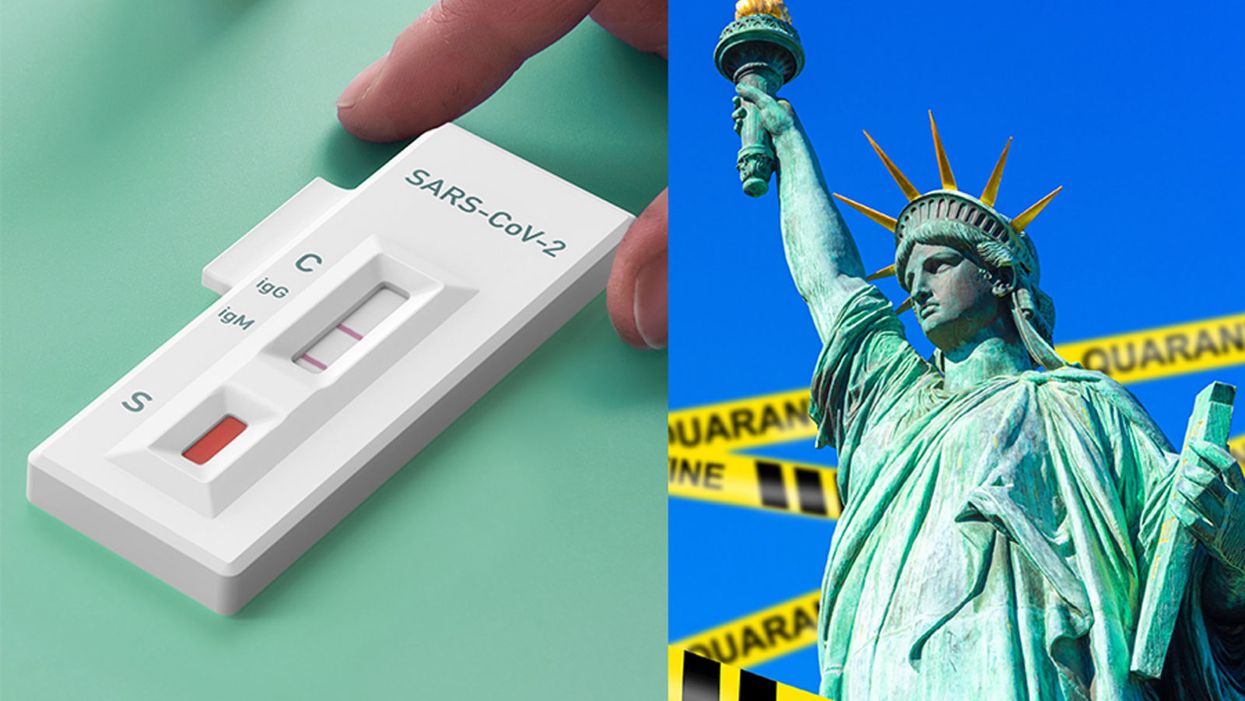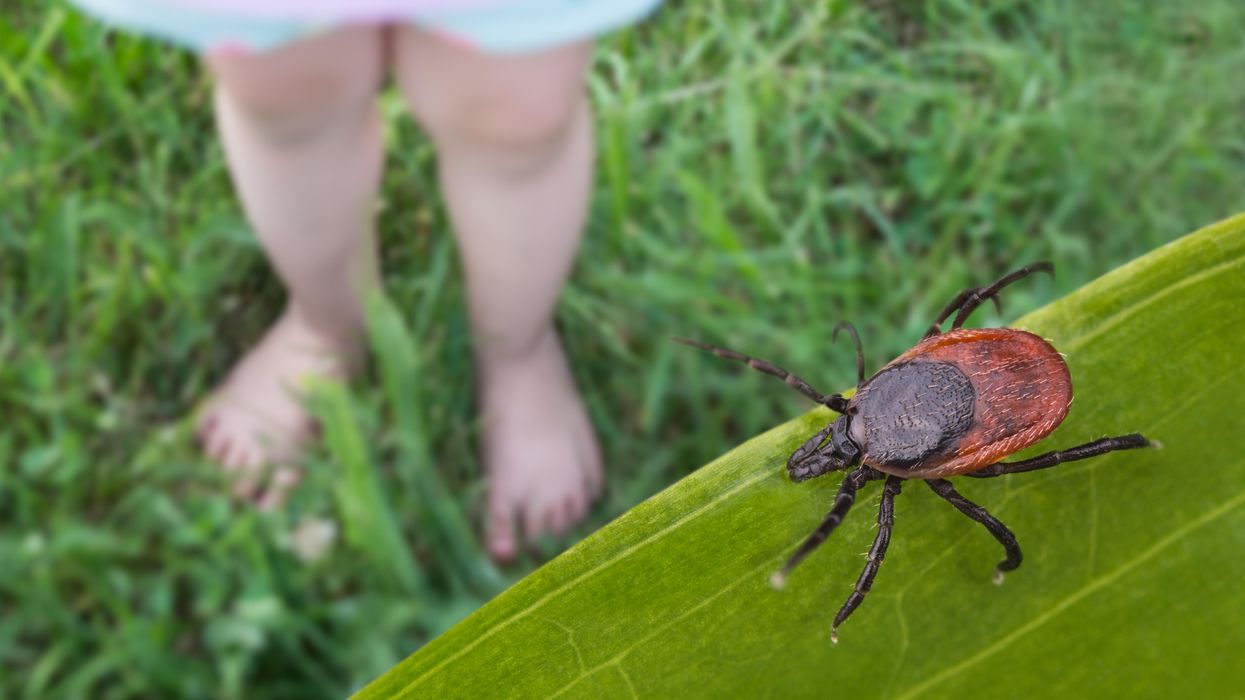Antibody Testing Alone is Not the Key to Re-Opening Society

Immunity tests have too many unknowns right now to make them very useful in determining protective antibody status.
[Editor's Note: We asked experts from different specialties to weigh in on a timely Big Question: "How should immunity testing play a role in re-opening society?" Below, a virologist offers her perspective.]
With the advent of serology testing and increased emphasis on "re-opening" America, public health officials have begun considering whether or not people who have recovered from COVID-19 can safely re-enter the workplace.
"Immunity certificates cannot certify what is not known."
Conventional wisdom holds that people who have developed antibodies in response to infection with SARS-CoV-2, the coronavirus that causes COVID-19, are likely to be immune to reinfection.
For most acute viral infections, this is generally true. However, SARS-CoV-2 is a new pathogen, and there are currently many unanswered questions about immunity. Can recovered patients be reinfected or transmit the virus? Does symptom severity determine how protective responses will be after recovery? How long will protection last? Understanding these basic features is essential to phased re-opening of the government and economy for people who have recovered from COVID-19.
One mechanism that has been considered is issuing "immunity certificates" to individuals with antibodies against SARS-CoV-2. These certificates would verify that individuals have already recovered from COVID-19, and thus have antibodies in their blood that will protect them against reinfection, enabling them to safely return to work and participate in society. Although this sounds reasonable in theory, there are many practical reasons why this is not a wise policy decision to ease off restrictive stay-home orders and distancing practices.
Too Many Scientific Unknowns
Serology tests measure antibodies in the serum—the liquid component of blood, which is where the antibodies are located. In this case, serology tests measure antibodies that specifically bind to SARS-CoV-2 virus particles. Usually when a person is infected with a virus, they develop antibodies that can "recognize" that virus, so the presence of SARS-CoV-2 antibodies indicates that a person has been previously exposed to the virus. Broad serology testing is critical to knowing how many people have been infected with SARS-CoV-2, since testing capacity for the virus itself has been so low.
Tests for the virus measure amounts of SARS-CoV-2 RNA—the virus's genetic material—directly, and thus will not detect the virus once a person has recovered. Thus, the majority of people who were not severely ill and did not require hospitalization, or did not have direct contact with a confirmed case, will not test positive for the virus weeks after they have recovered and can only determine if they had COVID-19 by testing for antibodies.
In most cases, for most pathogens, antibodies are also neutralizing, meaning they bind to the virus and render it incapable of infecting cells, and this protects against future infections. Immunity certificates are based on the assumption that people with antibodies specific for SARS-CoV-2 will be protected against reinfection. The problem is that we've only known that SARS-CoV-2 existed for a little over four months. Although studies so far indicate that most (but not all) patients with confirmed COVID-19 cases develop antibodies, we don't know the extent to which antibodies are protective against reinfection, or how long that protection will last. Immunity certificates cannot certify what is not known.
The limited data so far is encouraging with regard to protective immunity. Most of the patient sera tested for antibodies show reasonable titers of IgG, the type of antibodies most likely to be neutralizing. Furthermore, studies have shown that these IgG antibodies are capable of neutralizing surrogate viruses as well as infectious SARS-CoV-2 in laboratory tests. In addition, rhesus monkeys that were experimentally infected with SARS-CoV-2 and allowed to recover were protected from reinfection after a subsequent experimental challenge. These data tentatively suggest that most people are likely to develop neutralizing IgG, and protective immunity, after being infected by SARS-CoV-2.
However, not all COVID-19 patients do produce high levels of antibodies specific for SARS-CoV-2. A small number of patients in one study had no detectable neutralizing IgG. There have also been reports of patients in South Korea testing PCR positive after a prior negative test, indicating reinfection or reactivation. These cases may be explained by the sensitivity of the PCR test, and no data have been produced to indicate that these cases are genuine reinfection or recurrence of viral infection.
Complicating matters further, not all serology tests measure antibody titers. Some rapid serology tests are designed to be binary—the test can either detect antibodies or not, but does not give information about the amount of antibodies circulating. Based on our current knowledge, we cannot be certain that merely having any level of detectable antibodies alone guarantees protection from reinfection, or from a subclinical reinfection that might not cause a second case of COVID-19, but could still result in transmission to others. These unknowns remain problematic even with tests that accurately detect the presence of antibodies—which is not a given today, as many of the newly available tests are reportedly unreliable.
A Logistical and Ethical Quagmire
While most people are eager to cast off the isolation of physical distancing and resume their normal lives, mere desire to return to normality is not an indicator of whether those antibodies actually work, and no certificate can confer immune protection. Furthermore, immunity certificates could lead to some complicated logistical and ethical issues. If antibodies do not guarantee protective immunity, certifying that they do could give antibody-positive people a false sense of security, causing them to relax infection control practices such as distancing and hand hygiene.
"We should not, however, place our faith in assumptions and make return to normality contingent on an arbitrary and uninformative piece of paper."
Certificates could be forged, putting susceptible people at higher exposure risk. It's not clear who would issue them, what they would entitle the bearer to do or not do, or how certification would be verified or enforced. There are many ways in which such certificates could be used as a pretext to discriminate against people based on health status, in addition to disability, race, and socioeconomic status. Tracking people based on immune status raises further concerns about privacy and civil rights.
Rather than issuing documents confirming immune status, we should instead "re-open" society cautiously, with widespread virus and serology testing to accurately identify and isolate infected cases rapidly, with immediate contact tracing to safely quarantine and monitor those at exposure risk. Broad serosurveillance must be coupled with functional assays for neutralization activity to begin assessing how protective antibodies might actually be against SARS-CoV-2 infection. To understand how long immunity lasts, we should study antibodies, as well as the functional capabilities of other components of the larger immune system, such as T cells, in recovered COVID-19 patients over time.
We should not, however, place our faith in assumptions and make return to normality contingent on an arbitrary and uninformative piece of paper. Re-opening society, the government, and the economy depends not only on accurately determining how many people have antibodies to SARS-CoV-2, but on a deeper understanding of how those antibodies work to provide protection.
Podcast: The Science of Recharging Your Energy with Sara Mednick
For today's podcast episode, Leaps.org talks with Sara Mednick, author of The Power of the Downstate, a book about the science of relaxation - why it's so important, the best ways to get more of it, and the time of day when our bodies are biologically suited to enjoy it the most.
If you’re like me, you may have a case of email apnea, where you stop taking restful breaths when you open a work email. Or maybe you’re in the habit of shining blue light into your eyes long after sunset through your phone. Many of us are doing all kinds of things throughout the day that put us in a constant state of fight or flight arousal, with long-term impacts on health, productivity and happiness.
My guest for today’s episode is Sara Mednick, author of The Power of the Downstate, a book about the science of relaxation – why it’s so important, the best ways to go about getting more of it, and the time of day when our bodies are biologically suited to enjoy it the most. As a cognitive neuroscientist at the University of California, Irvine, Mednick has a great scientific background on this topic. After getting her PhD at Harvard, she filled her sleep lab with 7 bedrooms, and this is where she is federally funded to study people sleeping around the clock, with her research published in top journals such as Nature Neuroscience. She received the Office Naval Research Young Investigator Award in 2015, and her previous book, Take a Nap! Change Your Life was based on her groundbreaking research on the benefits of napping.
In our conversation, we talk about how work and society make it tough to get stimulation like food and exercise in ways that support our circadian rhythms, and there just as many obstacles to getting sleep and restoration like our ancestors enjoyed for 99 percent of human history. Sara shares some fascinating ways to get around these challenges, as well as her insights about the importance of exposure to daylight and nature vs nurture when it comes to whether you’re a night owl or an early bird. And we talk about how things could change with work and lifestyles to make it easier to live in accordance with our biological rhythms.
Show notes
3:10 – The definition of “upstates” and “downstates”
5:50 – The power of 6 slow, deep breaths per minute to balance the nervous system
9:05 – Watching out for mouth breathing and email apnea
13:30 – Different ways of breathing for different goals
16:35 – Body rhythms – what is heart rate variability and why is it so important?
21:05 – Are you naturally a morning or night person? Nature vs nurture
27:10 – The perfect storm that gets in the way of following our circadian rhythms
29:15 – The evolution of our pre-bedtime downstates – why it's important to check in with your cave mates
30:10 – The culture shift needed for more people to follow their circadian rhythms and improve their health
35:10 – Employers and communities can build downstates into daily work and life
38:15 – Choosing how we react to the world
41:00 – Being smarter about peak performance
45:09 – The science of pacing yourself for long-term productivity
49:42 – The science of light exposure for circadian rhythms
52:20 – Where to learn more about Sara Mednick’s research and writing
Links:
Sara Mednick’s website https://www.saramednick.com/ and her Twitter
Mednick’s recent book - The Power of the Downstate
Mednick’s book on the benefits of napping - Take a Nap! Change Your Life
The blue light blocking glasses recommended in Mednick’s book https://www.amazon.com/dp/B019C3O2UE?psc=1&ref=ppx_yo2ov_dt_b_product_details
An app for measuring heart rate variability - Elite HRV app https://elitehrv.com/
Thorne take-home Melatonin test
Podcast: The Friday Five weekly roundup in health research
Researchers are making progress on a vaccine for Lyme disease, sex differences in cancer, new research on reducing your risk of dementia with leisure activities, and more in this week's Friday Five
The Friday Five covers five stories in health research that you may have missed this week. There are plenty of controversies and troubling ethical issues in science – and we get into many of them in our online magazine – but this news roundup focuses on scientific creativity and progress to give you a therapeutic dose of inspiration headed into the weekend.
Covered in this week's Friday Five:
- Sex differences in cancer
- Promising research on a vaccine for Lyme disease
- Using a super material for brain-like devices
- Measuring your immunity to Covid
- Reducing dementia risk with leisure activities


